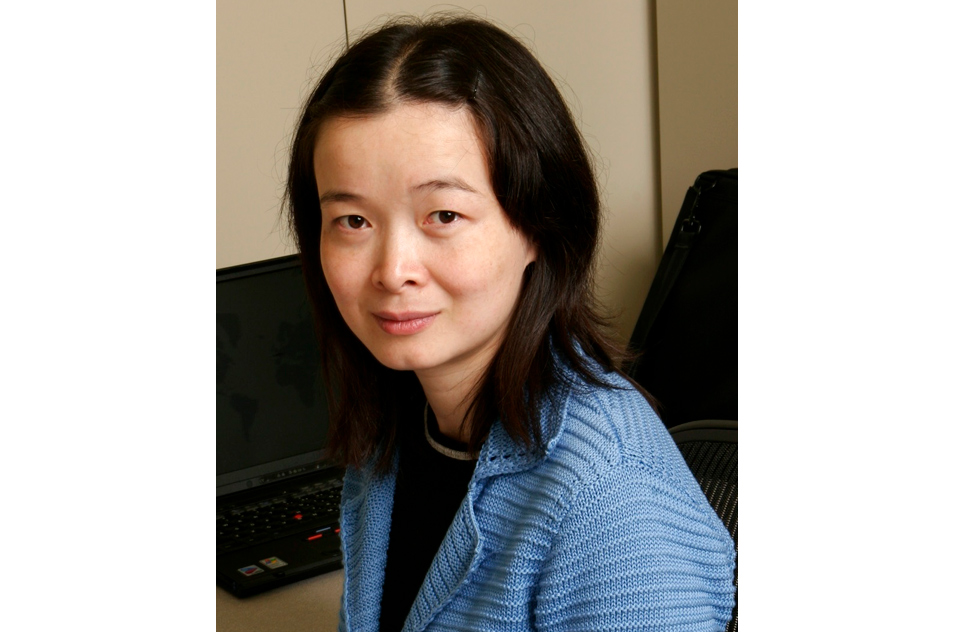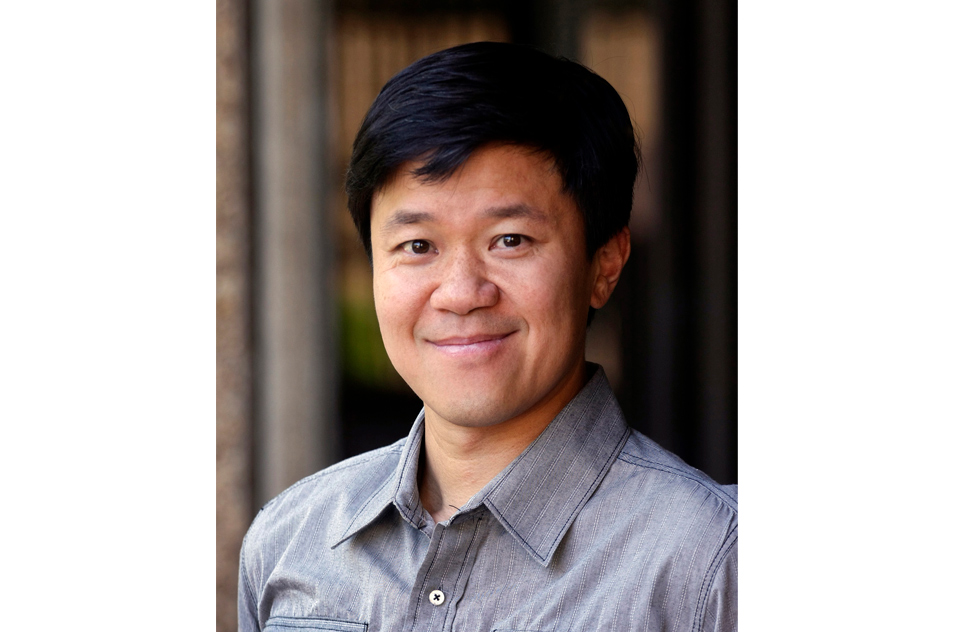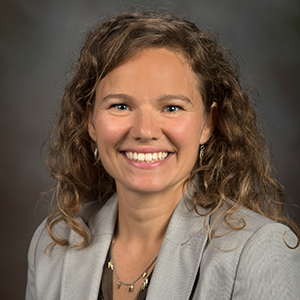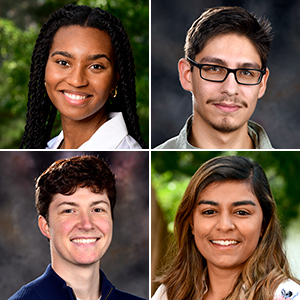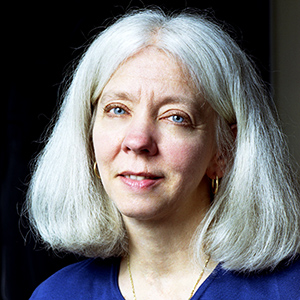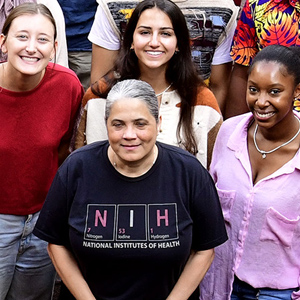Trainees play an important role at NIEHS by conducting much of the institute’s research into how the environment affects human health. Recently, two of those trainees were awarded prestigious postdoctoral fellowships that will not only fund their work but also provide additional career development opportunities.
Liz Garcia-Peterson, Ph.D., from the Metabolism, Genes, and Environment Group, and Saniya Rattan, Ph.D., from the Reproductive Developmental Biology Group, have been named Postdoctoral Research Associate Training (PRAT) Program Fellows. The program is sponsored by the National Institute of General Medical Sciences (NIGMS).
 Garcia-Peterson said she is looking forward to the experiences she will have as a PRAT fellow because they will help her lead her own research group one day. (Photo courtesy of Steve McCaw / NIEHS)
Garcia-Peterson said she is looking forward to the experiences she will have as a PRAT fellow because they will help her lead her own research group one day. (Photo courtesy of Steve McCaw / NIEHS)For the next three years, the PRAT program will pay their salaries, buy needed research supplies, offer training in leadership skills and grant writing, and foster a sense of collaboration with other PRAT fellows through networking events.
Colorectal cancer
Garcia-Peterson studies how gene-environment interactions affect colorectal cancer by examining a family of protein modification enzymes called sirtuins. Prior to joining NIEHS in 2019, she completed a doctorate in toxicology at the University of Wisconsin-Madison. There, she focused on SIRT6, one of the sirtuins linked to melanoma development and progression.
Under the mentorship of Xiaoling Li, Ph.D., head of Metabolism, Genes, and Environment Group, Garcia-Peterson is studying the regulation of another sirtuin, SIRT1, in secretory cells of the intestine called paneth cells. Garcia-Peterson said the new areas of science she and her group members are learning will benefit them in the long term.
'We are going into a lot of immunology and microbiome work, which is going to enhance my critical thinking for the future,' Garcia-Peterson said.
When thinking about her scientific career, Garcia-Peterson said the process of applying for the PRAT fellowship gives her a good foundation for how to apply for an NIH Pathway to Independence Award K99/R00, which many young scientists use to enter tenure-track positions at academic research institutions.
To find out more about Garcia-Peterson’s career, see the Environmental Factor article Scientific Journeys: A postdoctoral fellow describes her path.
 Rattan’s PRAT proposal described how she plans to look at factors that are important for cell lineage development in the ovary. (Photo courtesy of Steve McCaw / NIEHS)
Rattan’s PRAT proposal described how she plans to look at factors that are important for cell lineage development in the ovary. (Photo courtesy of Steve McCaw / NIEHS)Ovarian abnormalities
As a member of the research group led by Humphrey Yao, Ph.D., Rattan studies the biological factors involved in ovary development. She said understanding how ovarian abnormalities occur is key to unlocking how conditions such as polycystic ovarian syndrome arise. In short, a properly developed ovary is a healthy ovary.
Of all the benefits of being a PRAT fellow, Rattan’s favorite is the ability to network with scientists from across the National Institutes of Health (NIH).
'NIEHS is separated from the main NIH campus in Bethesda, Maryland, so the PRAT meetings provide an opportunity to meet my peers,' Rattan said. 'I’m really excited about that because we’re all driven to do research.'
As an undergraduate at the University of Illinois Urbana-Champaign, Rattan thought she wanted to become a veterinarian because she loved animals. After shadowing veterinarians, however, she discovered it was not for her. She took an advanced reproductive biology class and earned high scores because the course was so much fun. Soon after, she stumbled upon a research group doing work on the topic and was hooked.
PRAT and the pandemic
Anyone who has completed a PRAT proposal knows how much time and effort goes into it. In past years, senior colleagues at NIEHS would provide comments and tips to prospective PRAT fellows to make their applications stand out.
However, in 2020, with most NIEHS staff working remotely, Garcia-Peterson and Rattan used their own best judgment to craft successful proposals. The fact that their application packets were funded speaks to their motivation to overcome adversity and their drive to succeed in research.





